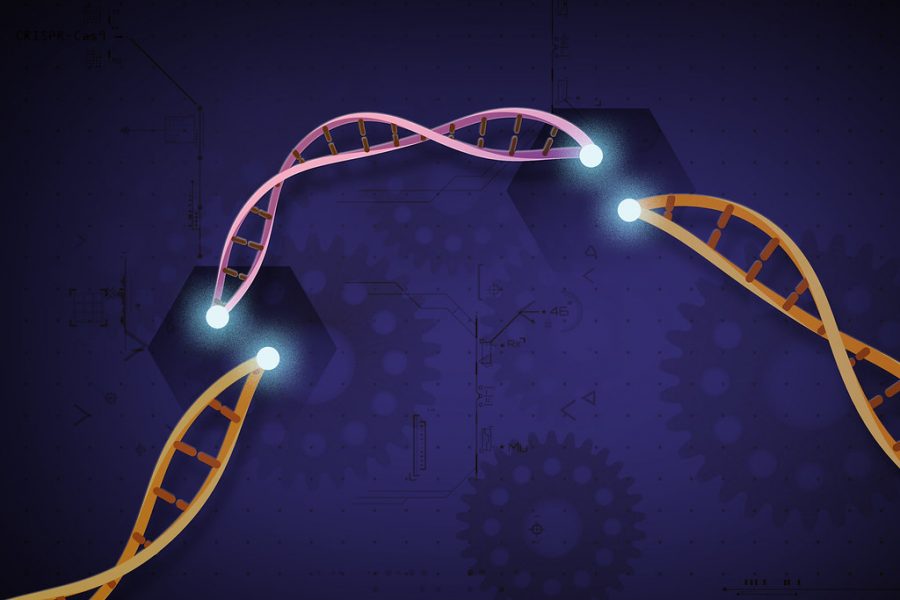Nobel Prize for Chemistry is awarded to two women chemists
CRISPR allows genomes to be cut and modified. Many scientists for years have researched and discovered its capabilities.
October 21, 2020
The Nobel Prize for Chemistry 2020 was awarded to scientists Emmanuelle Charpentier and Jennifer A. Doudna who share credit for their development of the revolutionary genome editor, CRISPR/Cas9.
These women are two of around three percent of the women who receive Nobels, and the first women to be awarded a Nobel Prize for science… a feat almost as impressive as their work to win this recognition. The idea was first introduced in 2012 at a Nobel Committee meeting. Since then, Charpentier of the Max Planck Unit for the Science of Pathogens Institute for Infection Biology and Doudna of the University of California, Berkeley, have found a way to change the code of life.
CRISPR/Cas9 (commonly known as just CRISPR), is specialized stretches of DNA. The protein Cas9 (or “CRISPR-associated”) is an enzyme that acts like a pair of molecular scissors, capable of cutting strands of DNA. It allows scientists to cut and paste genes if you will; an idea that wasn’t fathomable just a decade or so ago. CRISPR can allow humans to alter DNA which in turn changes gene functions. That means that it could be possible to correct genetic defects, treating and preventing diseases, as well as modifying crops to be better suited for multiple environments.
“There is enormous power in this genetic tool, which affects us all. It not only has revolutionised basic science, but also resulted in innovative crops and will lead to ground-breaking new medical treatments,” says Claes Gustafsson, chair of the Nobel Committee for Chemistry.
Not only does Charpentier and Doudna’s accomplishment make huge steps for science in the medical and agricultural fields, but it also marks a monumental change in how women in science are viewed… now with more respect and prowess.
These women were not the only ones to ever touch the idea of CRISPR; scientists all over the world have thought of genome-editing for years. However, Charpentier and Doudna earned the award for their significant leadership contributions.
CRISPR is a tool that will continue to impact the world more and more, and with time it (and its creators) will continue to get pushback and controversy. Regardless, congratulations to the first women to win a science Nobel Prize.









